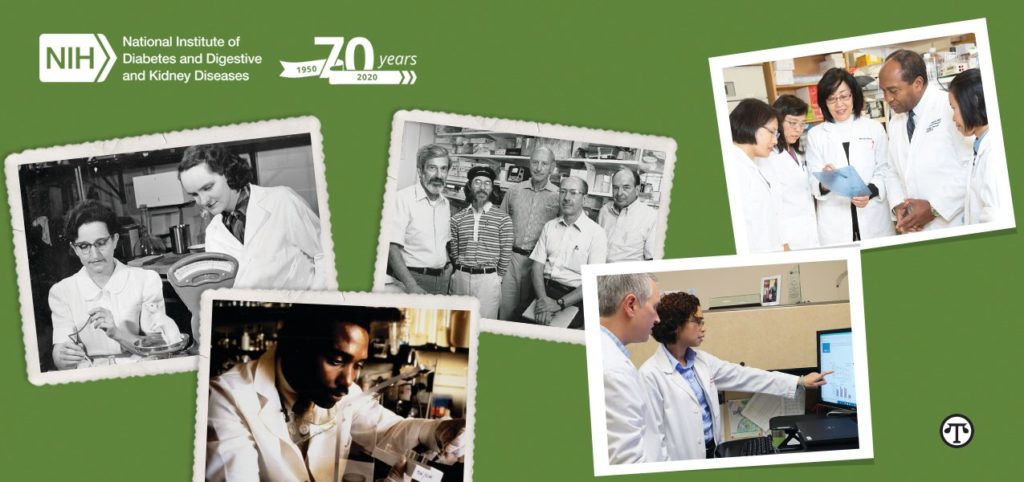NIDDK’s 70th Anniversary Marks Advances in Medical Research

(NAPSI)—This year, the National Institute of Diabetes and Digestive and Kidney Diseases (NIDDK) marks its 70th anniversary. Over the past seven decades, NIDDK-supported research has furthered our understanding of digestive diseases, including inflammatory bowel disease (IBD), and improved treatments for patients.
What is IBD?
IBD is the name for a group of digestive diseases that cause chronic inflammation in the digestive tract. Ulcerative colitis and Crohn’s disease are the most common types of IBD. People with IBD often experience symptoms such as abdominal pain, diarrhea and rectal bleeding. IBD can also lead to severe complications, including intestinal damage and colorectal cancer. Currently IBD has no cure, so the goal of treatment is to reduce symptoms and prevent additional health complications.
How is IBD treated?
In the first half of the 1900s, surgery to remove the affected part of the intestines was the only treatment for IBD, and it was not always effective. Starting in the 1950s, doctors began prescribing medicines to help control inflammation and IBD symptoms. In recent years, additional medicines have been approved that provide effective IBD treatment options for more people.
While treatment advances have improved the health and quality of life of many people with IBD, not all people respond well to the medicines. In addition, some IBD medicines can cause serious side effects. Many people may still need surgery while living with IBD.
NIDDK IBD Research
The NIDDK supports research into the mechanisms that drive inflammation in the digestive tract and the individual factors that affect IBD development. These individual factors include genes and the microbiome—the bacteria, viruses and other microbes that live in the human digestive tract. NIDDK-supported IBD research may lead to more effective, personalized ways to treat IBD, preventing complications and the need for surgery.
For example, NIDDK-supported researchers are examining the relationship between IBD and the microbiome. Studies show that the microbiomes in people with IBD differ from the microbiomes in people without the disease. Future research will examine how microbes in the digestive tract may promote or protect against IBD and how treatments might target the microbiome.
NIDDK researchers have also demonstrated that genes play a role in the development of IBD and have identified more than 250 regions of the human genome associated with IBD risk. Scientists continue to study these regions to identify the specific genes that contribute to IBD.
Researchers are finding ways to personalize IBD treatments by using information about a person’s genes, microbiome and other factors. For example, an NIDDK-sponsored study recently identified genetic factors and other characteristics that may help predict how children with ulcerative colitis will respond to certain IBD medicines.
The NIDDK also supports research using stem cell technology to create tiny artificial tissues (organoids) in the laboratory that resemble intestine or colon tissue under the microscope. Using a person’s own biopsies or circulating stem cells, it is possible to create personalized artificial tissues in the laboratory.
The tissues will be tested to understand the person’s own unique disease, possibly predict whether an existing treatment works for that person and discover new treatments. The same technologies are being used to find ways to accelerate healing or repair or even replace damaged tissue in the future.
The NIDDK and the Future of IBD Treatment
Building on its 70-year history of biomedical research, the NIDDK will continue to foster scientific discoveries that deepen our understanding of IBD and develop more personalized, targeted and effective IBD treatments.
Visit the NIDDK website to learn more about IBD and NIDDK’s digestive diseases research.

“Over the past seven decades, National Institute of Diabetes and Digestive and Kidney Diseases (NIDDK)-supported research has furthered our understanding of digestive diseases, including inflammatory bowel disease (IBD), and improved treatments.https://bit.ly/3jj8yzl”
